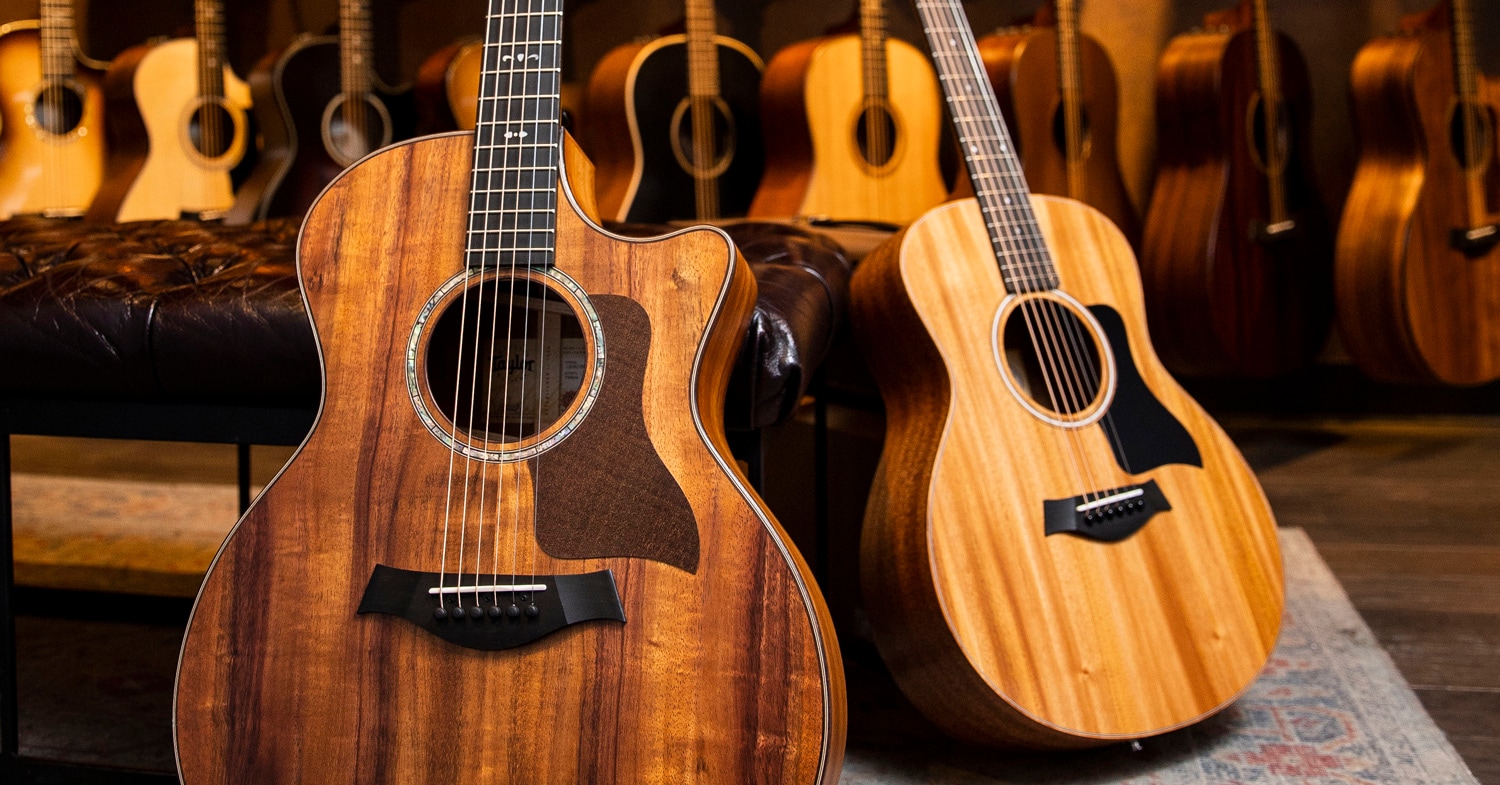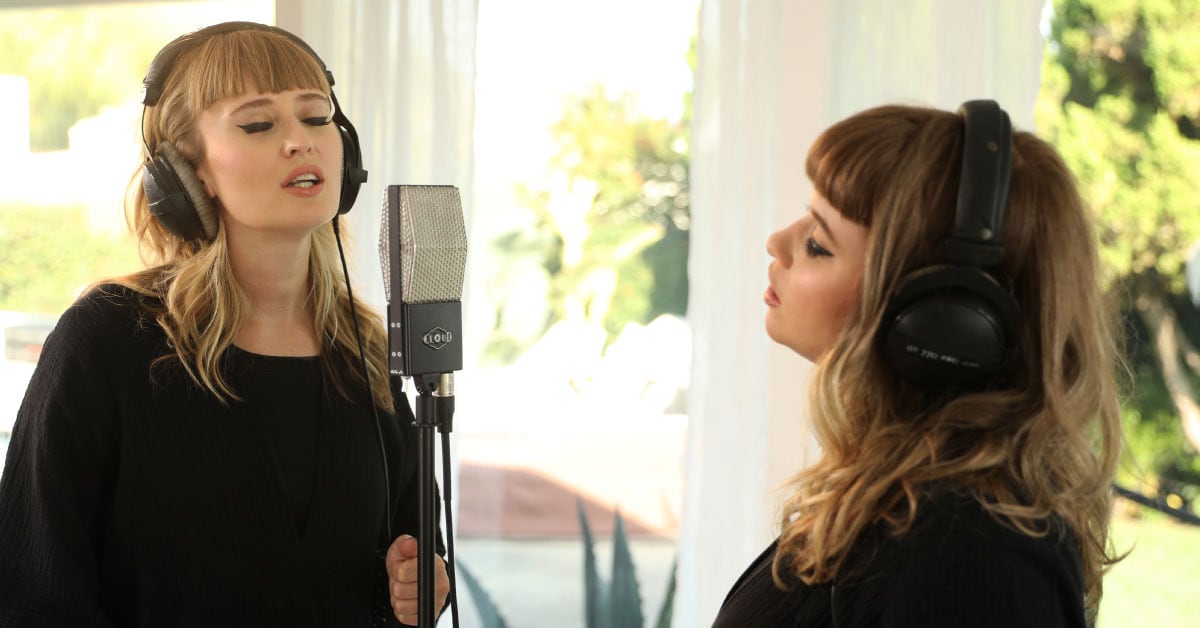With one look at the powerhouse vocal duo behind indie pop band Lucius, you might think you’re seeing double. But with one listen to Holly Laessig and Jess Wolfe, two Berklee College of Music graduates, you’ll find the real unity in their vocals. Laessig and Wolfe’s voices complement each other in a way that they become their own entity. Utilizing the microphone as a tool in the studio and onstage, the pair experiment with dimension and dynamics, so that it sounds like you're hearing a much larger group of singers.
Before even releasing their 2013 debut album, Wildewoman, Rolling Stone called Lucius a “Band to Watch.” Since then, they’ve shared the stage with artists like Roger Waters, Jack White and David Byrne, and released two more full-length albums, including 2016’s Billboard-charting Good Grief. The voice(s) behind Lucius talked with us about how they met, the mics they use to get their desired vocal sound, and how they’ve found inspiration during quarantine.
How was Lucius formed?
Laessig: I had decided to be a musician, and I went to college for music. That's where I met Jess for the first time many moons ago. We had mutual friends, and it wasn’t really until we started talking about our musical interests and the styles of music that we loved, that we kind of clicked and thought, “Oh, we should try and do something together.” Initially, it was just a little project, “let's do a cover show together,” and then we just never stopped after that.
Wolfe: Yeah. We were gonna do a girl group cover show of the White Album.
Laessig: Never did.
Wolfe: Never did. But started writing together, and it's been 15 years of traveling the world and making music together.
Can you talk about your relationship with each other, and how it’s affected your music?
Laessig: I think the thing about it was that we didn’t necessarily make this super-hard commitment from the get-go. It was much more gradual, and our friendship was that way, too. I think we became friends as we became musical partners and got closer throughout that whole process. And so the only commitment was really, just, let's keep doing this and see where it goes.
Wolfe: And I think because we offer each other something that the other doesn’t have, there's never been a competitive nature between us. We always go for something, but it's as a team. And we also lift each other up. It's always been encouraging and supportive. We grew up in situations where we both felt like kind of outcasts, sort of the school nerd or whatever you want to call it. And so I think we always empathized with each other's situation and were able to draw from that. As our friendship developed and our musical connection developed, it's been a really beautiful thing to experience life together on the road. We can really speak from the other person's perspective, which I think makes for an incredibly unique experience.
Can you describe the Lucius aesthetic?
Wolfe: We always loved old recordings from the '60s. Phil Spector and Elliott Smith, these double-vocal recordings. We always just loved the sound. When we started writing and singing together, we thought, “Well, wouldn’t it be cool to create that sound but to actually do it live?” Here's two people who have very different voices, but when they get together, they make something that's uniquely their own. It's a third voice. We didn’t really want to trade off verses or trade off songs. We wanted to sing together.
Laessig: We both wanted to be the lead, okay? Neither one wanted to give it up. [laughs]
Wolfe: I wanted to sing with you. And through that expression and that aesthetic that we borrowed but made our own, we also wanted people to watch us and feel the same thing. So, when you go and hear a church choir, they're all wearing robes, and they all look the same. When you watch a choir, you're not thinking about an individual, you're thinking about a unit that sings as one. You think about the sound that they create together. And that's what you see. So, we borrowed that idea and made a much more flamboyant version of it. A lot more glitter involved, but with the same intention. We want you to see what you hear, which is one voice. We've always kind of been obsessed with dynamics and dimension. All the music that we listened to as kids has a lot of that, both visually and musically. Because we've used the voice as an instrument, a lot of times, when we're making demos, we're sort of setting a landscape with our voices to create a picture or a feeling.
What kind of mics do you use to get your desired vocal sound as a duo?
Laessig: When we’re at home recording demos and writing new songs, we almost always use Shure SM7B microphones. They’re just really good, sturdy microphones that give us a good, consistent sound. That’s super important for us because we have different voices, and finding a microphone that works so well for both of our voices is super valuable to what we do.
What other mics do you use?
Laessig: We have a lot of fun using figure-8 microphones of many kinds—Neumanns and Shures. And aside from giving the aesthetic appeal, which is important to us onstage and off, there's a power in using the same microphone, because we're connecting and we're staring into each other's eyes. We're singing into each other's voices in a sense.
Wolfe: Since the beginning, we’ve always tried to sing as one voice because our two different voices complement each other in this way that creates its own entity. So, having one mic that sort of amplifies that unified voice is a cool thing for us to play with.
Laessig: [We also use] a KU 100 binaural Neumann microphone. It’s really helpful in creating an immersive experience in the studio. It’s a 3D microphone, so we have a lot of fun playing with dimension and dynamics.

What has kept you motivated to make music throughout your career?
Wolfe: I think the two of us are always exploring new sounds and are always fascinated by what else we can do together. I think some of the things that have happened in our career—whether it's singing with Roger Waters and doing the Pink Floyd tours or singing with Mavis Staples or Harry Styles—and being able to maintain our own career and our band's career at the same time, has proven to us that anything's possible.
Have you been working on any new music during quarantine?
Wolfe: We can't tour, so we found ourselves having the time and energy to sit down and write. Once we started, we couldn’t stop. We started writing a lot with other writers through Zoom, which we hadn’t done before. We hadn’t written with other writers before. And we like it. One of the writers that we are working with is Lori McKenna. We started talking about just having these heavy feelings about the state of things, and how can we turn that into something positive. And that's how we started the song, "Turn into Love."
What’s the meaning behind “Turn into Love” and what inspired it?
Laessig: The beginning of it starts off talking about having a conversation with your television because you have no one else to talk to, and continues on into feeling this heaviness, and wanting to just make something good with it. That's what we've been trying to focus on throughout this.
Wolfe: I think one of the important lines is, "Love doesn’t follow the sign of the times." And it's true, you know? Love can be found in the darkest of moments and darkest of hours.
We make music because it connects us to each other and to the world.
How have you continued to engage with your fans and community during quarantine?
Laessig: When quarantine started, there was so much going on apart from isolation and social injustice and massive unemployment. We felt pretty hopeless and helpless, and we were just wracking our brains on how to be proactive members of our community. So, we decided to do a month-long series of concerts. Every week, we did a different show with a special guest artist, and we made merch and a silent auction to raise money for eight Los Angeles businesses. It ended up being incredibly successful. We raised $70,000 for local businesses and made some small imprint on their experience. It really reminded us how important community is, and how much it means to us to let our fans be a part of something together for the greater good.
Keep up with Lucius at their official website and Instagram.
.jpeg)







